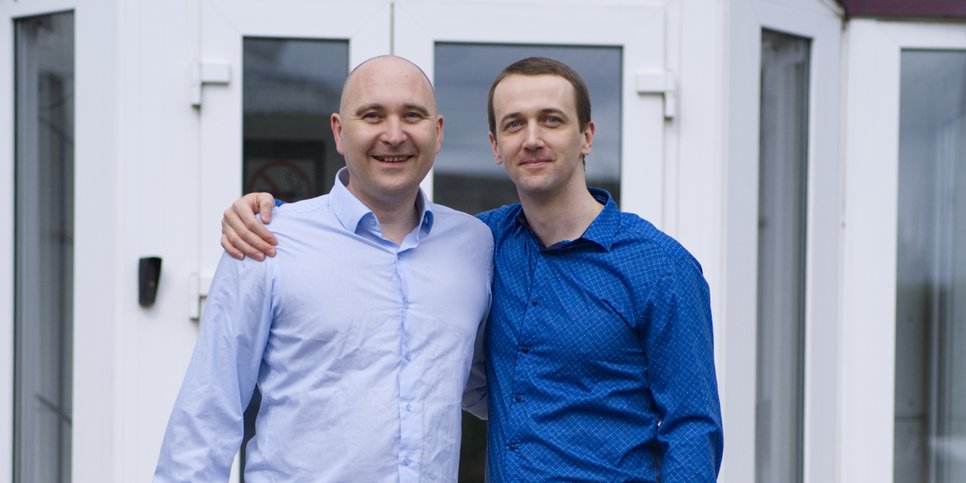Maksim Morozov and Yuriy Usanov after their release
Maksim Morozov and Yuriy Usanov after their release
Court in Tayga Sentenced Two Jehovah's Witnesses to 3 Years in a Penal Colony, but Considered the Term Already Served. Yuriy Usanov and Maksim Morozov Are Free
Kemerovo RegionOn August 15, 2023, Tatyana Kovaleva, judge of the Tayga City Court of the Kemerovo Region, sentenced Yuriy Usanov and Maksim Morozov to 3 years in a penal colony for their faith. But since the term is considered to have already been served while they were in pretrial detention, the believers were released. More than 60 listeners, who were admitted to the courtroom reacted to the decision with applause.
The believers faced prosecution on religious grounds in early April 2021, when the Investigative Directorate of the Investigative Committee of the Russian Federation for the Kemerovo Region — Kuzbass initiated a criminal case against Yuriy Usanov, charging him with holding meetings of believers via video conferencing. After the searches that took place the next day, Usanov was detained and placed in a pretrial detention center. After 4 months, Maksim Morozov was also put behind bars. According to him, the investigation presented them with video recordings of meetings at which the Bible was discussed and prayers to God were said, as proof of their "involvement in extremism".
Usanov spent more than 2 years behind bars and Morozov - 2 years and 9 days. Yuriy Usanov was in solitary confinement for the last 9 months before the verdict. His wedding was scheduled for July 2021, and had to be held in the pretrail detention center. Officers of the Anzhero-Sudzhensk detention center said that such a thing “has never been seen here before.” The administration of the pretrial detention center allowed the newlyweds to talk for 5 minutes after the marriage was registered; following this Yuriy's wife, Irina, was not permitted to visit him for about a year.
After almost a year of preliminary investigation, the case went to court. At the hearings falsifications were revealed: the testimony of two witnesses for the prosecution was identical, including even spelling errors; another woman stated that words she had not said appeared in her interrogation protocol. In court, she described the believers as kind, humble, and patient people. Despite this, the prosecutor requested 5 years and 2 months in a penal colony and 7 months of additional restrictions for Usanov, 31, and Morozov, 40. The verdict passed by the court has not entered into force and can be appealed.
A few days before the verdict was passed, the state prosecutor reclassified the charge as participating in the activity of an extremist organization, having found no confirmation of actions of an "organizational nature." This facilitated the punishment being mitigated and the speedy release of the believers.
The court found Morozov and Usanov guilty of committing the crime specified in Article 282.2(2) of the RF CrC and sentenced them to imprisonment for 3 years with additional restriction of freedom for 6 months (not to change the place of residence or stay without the consent of a specialized state body exercising supervision, and also not to travel outside the territory of the city district without its consent — Tayga for Usanov, and Tolyatti for Morozov). The believers' period of detention was taken into consideration at the rate of 1 day for 1.5 days.
To date, 19 Jehovah's Witnesses, including 3 women, have been subjected to religious repression in the Kemerovo Region. Recently, a harsh sentence was passed against a believer with a disability, Andrey Vlasov. His illness worsens rapidly due to prison conditions. According to the law, he should not be detained.
The world community and the RF Supreme Court stated that "the joint performance of rites and ceremonies [of Jehovah's Witnesses] does not in itself constitute a crime under Article 282.2 of the RF CrC, despite the liquidation of their legal entities."


